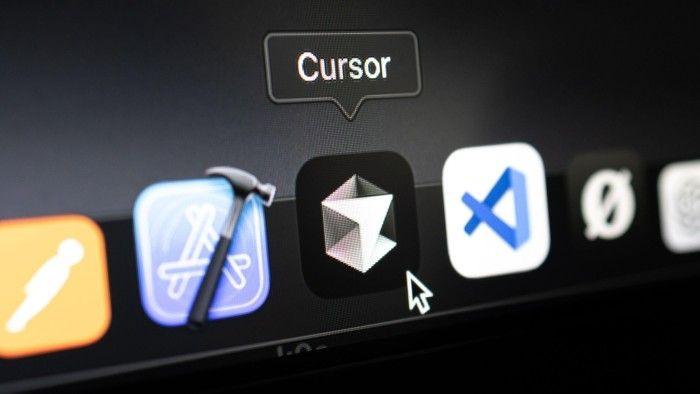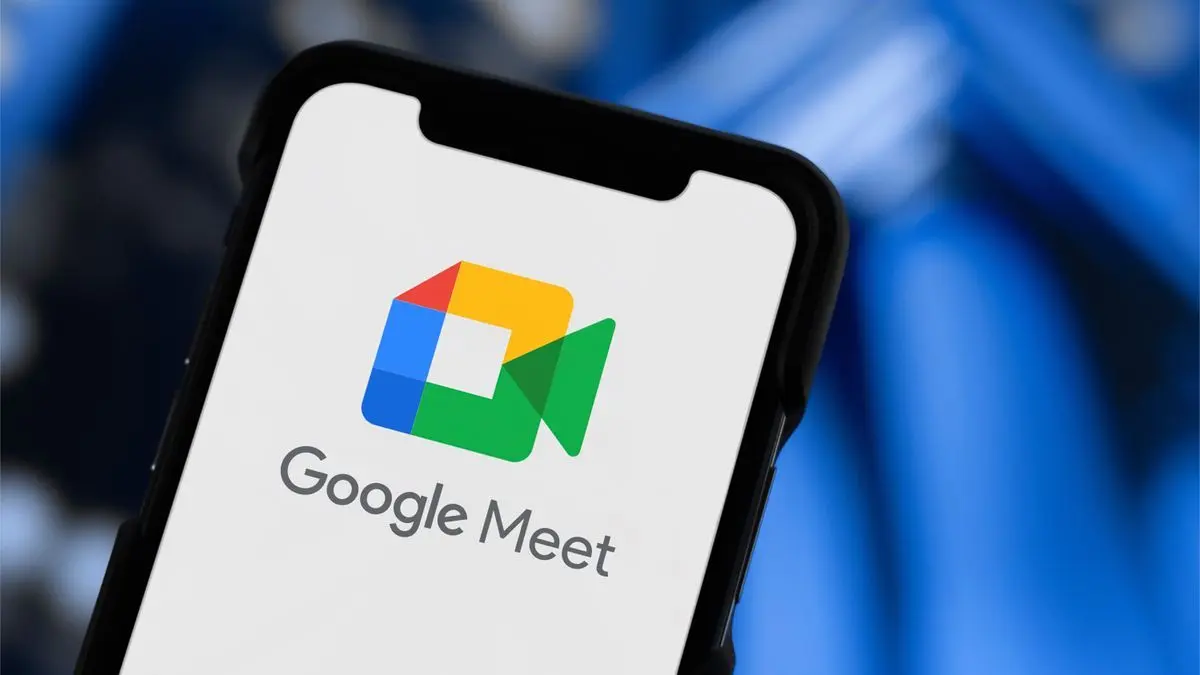OpenAI in Talks to Acquire AI Coding Startup Windsurf for $3 Billion
11 Sources
11 Sources
[1]
OpenAI is reportedly in talks to buy Codeium for $3B, with news expected later this week | TechCrunch
OpenAI is reportedly in talks to buy Codeium for $3B, with news expected later this week Codeium, the maker of a popular AI coding assistant tool Windsurf, is in talks to be acquired by OpenAI for about $3 billion, Bloomberg reported. If the deal happens, it would put OpenAI in direct competition with a number of other AI coding assistant providers, including Anysphere, the maker of Cursor, which OpenAI backed from its OpenAI Startup Fund. The acquisition could jeopardize the credibility of the OpenAI Startup Fund, given that it is one of Cursor's biggest investors, said a person familiar with Cursor's captable. It's not clear whether OpenAI approached Cursor about an acquisition. In addition to what sources told Bloomberg, there are a few more clues that something is going on between the two companies. A couple of days ago, Windsurf users received an email that said that because of an announcement later this week, they have the option to lock in access to the coding editor at $10 a month. And OpenAI chief product officer Kevin Weil also released a video yesterday praising Windsurf's capabilities. Codeium has been in talks to raise fresh funds at a $2.85 billion valuation led by Kleiner Perkins, TechCrunch reported in February. The company has reached about $40 million in annualized recurring revenue (ARR), according to our reporting. That revenue run rate is much lower than Cursor's, which reportedly makes $200 million on an ARR basis. Cursor has been in talks to raise capital at about $10 billion valuation, Bloomberg reported last month. Since its founding in 2021 by Varun Mohan and his childhood friend and fellow MIT grad, Douglas Chen, Codeium has previously raised $243 million from investors including Greenoaks Capital and General Catalyst, according to PitchBook data.
[2]
Windsurf slashes prices as competition with Cursor heats up | TechCrunch
AI coding assistant startup Windsurf cut its prices "across the board" it announced on Monday, touting "massive savings" for its users as competition with its rival Cursor intensifies. Windsurf said it's getting rid of its complex system of "flow action credits," which charged developers for actions its AI did in the background. It's also cutting prices for its team plans to $30 per user per month down from $35, while making its enterprise plans "much cheaper," per the announcement. Windsurf product marketer Rob Hou proclaimed on X that Windsurf now has "BY FAR the best and most affordable pricing structure of all AI coding tools on the market," crediting this to Windsurf optimizing its GPU usage. Hou criticized "confusing" competitor plans priced at $20 a month in an apparent dig at Cursor's individual monthly plan, which starts at $20 compared to Windsurf's $15. The pricing overhaul comes as Windsurf is reportedly being considered for an acquisition by OpenAI for $3 billion (Cursor's creator Anysphere is in talks to raise at a $10 billion valuation.) As TechCrunch previously reported, Windsurf is the smaller of the two coding assistant startups, generating about $100 million in ARR compared to Cursor's $300 million. OpenAI originally wanted to buy Cursor, but it's growing so quickly that it's not in the market to be sold. Although Windsurf hasn't confirmed the OpenAI acquisition reports, it has recently stepped up its public collaborations with OpenAI. For example, Windsurf's CEO Varun Mohan appeared earlier this month in OpenAI's launch video for its latest API model family. And as part of the pricing change announcement, Windsurf is lavishing its users with another week of free and unlimited usage of OpenAI's latest GPT-4.1 and o4-mini models. The big question is whether Cursor ends up cutting its own prices in response to Windsurf's revamp. That might risk a price war, making it harder for both startups to scale up profitably. Windsurf, which declined to comment for this article, said in its announcement that it's continuing to deliver on its promise "from the very beginning" to pass saving back to its users. Cursor creator Anysphere didn't respond to a request for comment.
[3]
Why OpenAI wanted to buy Cursor but opted for the fast-growing Windsurf | TechCrunch
Anysphere, maker of AI coding assistant Cursor, is growing so quickly, it's not in the market to be sold, even to OpenAI, a source close to the company tells TechCrunch. It's been a hot target. Cursor is one of the most popular AI-powered coding tools and its revenue has been growing astronomically - doubling on average every two months, according to another source. Anysphere's current average annual recurring revenue is about $300 million, according to two people. The company previously walked away from early acquisition discussions with OpenAI, after the ChatGPT maker approached Cursor, two sources close to the company confirmed, and CNBC previously reported. Anysphere has also received other acquisition offers that the company didn't consider, according to one of these sources. Cursor turned down the offers because the startup wants to stay independent, said two people close to the company. Instead, Anysphere has been in talks to raise capital at about a $10 billion valuation, Bloomberg reported last month. Although it didn't nab Anysphere, OpenAI didn't give up on buying an established AI coding tool startup. OpenAI talked with more than 20 others, CNBC reported. And then it got serious over the next fastest-growing AI coding startup, Windsurf, with a $3 billion acquisition offer, Bloomberg reported last week. While Windsurf is a comparatively smaller company, its ARR is about $100 million, up from $40 million in ARR in February, according to a source. Windsurf has been gaining popularity with the developer community, too, and its coding product is designed to work with legacy enterprise systems. Windsurf did not respond to TechCrunch's request for comment. OpenAI declined to comment on its acquisition talks. OpenAI is likely shopping because it's looking for its next growth areas as competitors such as Google's Gemini and China's DeepSeek put pricing pressure on access to foundational models. Moreover, Anthropic and Google have recently released AI models that outperform OpenAI's models on coding benchmarks, increasingly making them a preferred choice for developers. While OpenAI could build its own AI coding assistant, buying a product that is already popular with developers means the ChatGPT-maker wouldn't have to start from scratch to build this business. VCs who invest in developer tool startups are certainly watching. Speculating about OpenAI's strategy, Chris Farmer, partner and CEO at Signal Fire, said, "They'll be acquisitive at the app layer. It's existential for them."
[4]
OpenAI in talks to pay about $3 billion to acquire AI coding startup Windsurf
OpenAI CEO Sam Altman speaks at a panel discussion at the Technical University in Berlin on Feb. 7, 2025. OpenAI is in talks to pay about $3 billion to acquire Windsurf, an artificial intelligence tool for coding help, CNBC has confirmed. Windsurf, formerly known as Codeium, competes with Cursor, another popular AI coding tool, as well as existing AI coding features from companies like Microsoft, Anthropic and OpenAI itself. Bloomberg was first to report on the potential deal, which CNBC confirmed with a person familiar with the matter who asked to remain anonymous since the talks are ongoing. OpenAI is rushing to stay ahead in the generative AI race, where competitors including Google, Anthropic and Elon Musk's xAI are investing heavily and regularly rolling out new products. Late last month, OpenAI closed a $40 billion funding round, the largest on record for a private tech company, at a $300 billion valuation. OpenAI on Wednesday released its latest AI models, o3 and o4-mini, which it said are capable of "thinking with images," meaning they can understand and analyze a user's sketches and diagrams, even if they're low quality. Windsurf is among the tools, alongside Cursor and Replit, that developers have flocked to in recent months to "vibe code," a term that refers to having AI models quickly assemble code for new software. Andrej Karpathy, a former OpenAI co-founder, coined the term in a post on X in February. Earlier this month Microsoft, whose Visual Studio Code text editor is widely used among programmers, announced an Agent Mode feature with similar capability.
[5]
OpenAI in talks to pay about $3 billion to acquire AI coding startup Windsurf
Sam Altman, chief executive officer of OpenAI Inc., in Paris on Feb. 11.Nathan Laine / Bloomberg via Getty Images OpenAI is in talks to pay about $3 billion to acquire Windsurf, an artificial intelligence tool for coding help, CNBC has confirmed. Windsurf, formerly known as Codeium, competes with Cursor, another popular AI coding tool, as well as existing AI coding features from companies like Microsoft, Anthropic and OpenAI itself. Bloomberg was first to report on the potential deal, which CNBC confirmed with a person familiar with the matter who asked to remain anonymous since the talks are ongoing. OpenAI is rushing to stay ahead in the generative AI race, where competitors including Google, Anthropic and Elon Musk's xAI are investing heavily and regularly rolling out new products. Late last month, OpenAI closed a $40 billion funding round, the largest on record for a private tech company, at a $300 billion valuation. OpenAI on Wednesday released its latest AI models, o3 and o4-mini, which it said are capable of "thinking with images," meaning they can understand and analyze a user's sketches and diagrams, even if they're low quality. Should a deal take place with Windsurf, it would be by far OpenAI's biggest acquisition. The company has made several smaller deals in the past, including the purchase last June of analytics database provider Rockset and video collaboration platform Multi. In 2023, OpenAI bought Global Illumination, which had been "leveraging AI to build creative tools, infrastructure, and digital experiences," according to a blog post when the deal was announced. Terms weren't disclosed for any of those transactions. Windsurf is among the tools, alongside Cursor and Replit, that developers have flocked to in recent months to "vibe code," a term that refers to having AI models quickly assemble code for new software. Andrej Karpathy, a former OpenAI co-founder, coined the term in a post on X in February. Earlier this month Microsoft, whose Visual Studio Code text editor is widely used among programmers, announced an Agent Mode feature with similar capability. The startup's investors include Founders Fund, General Catalyst, Greenoaks and Kleiner Perkins. TechCrunch reported in February that Windsurf was raising a funding round at a $2.85 billion valuation.
[6]
OpenAI launches o3 and o4-mini amid $3B Windsurf acquisition rumors - SiliconANGLE
OpenAI launches o3 and o4-mini amid $3B Windsurf acquisition rumors OpenAI today launched o3 and o4-mini, the latest additions to its lineup of reasoning-optimized language models. The product milestone came against the backdrop of reports that the company may acquire Windsurf for $3 billion. Windsurf, officially Exafunction Inc., sells artificial intelligence coding tools. The company uses OpenAI models to power some of its features. The ChatGPT developer's first new algorithm, o3, is described as its most advanced reasoning model yet. The other addition to OpenAI's portfolio, o4-mini, trades off some output quality for faster performance and lower pricing. Both models are described as being more cost-efficient their predecessors across "most real-world" tasks. OpenAI says that o3 has set new records across several popular AI performance benchmarks. One of them is SWE-bench, which evaluates AI models' coding capabilities by asking them to fix issues in open-source projects. MMMLU, another benchmark on which o3 demonstrated state-of-the-art performance, includes college-level questions spanning topics such as science and business. One contributor to the model's output quality is that it's better at tool use. This is the process whereby a language model uses an external system, such as a code editor or a search engine, to carry out tasks it may not be capable of performing on its own. OpenAI says that o3 can analyze and generate images, run Python code, search the web and interact with custom tools that customers connect via an application programming interface. "In evaluations by external experts, o3 makes 20 percent fewer major errors than OpenAI o1 on difficult, real-world tasks," OpenAI staffers detailed in today's launch announcement. The second new model that the company launched today, o4-mini, shares many of o3's tool use features. The difference is that it's smaller, which means it supports a narrower set of tasks but can complete them faster and more cost-efficiently. OpenAI says that this cost-efficiency will enable it to provide significantly higher usage limits than for o3. The company's internal tests indicate that o4-mini is particularly useful for tasks that involve math, coding and visual input. Without tool use, the model can outperform the more advanced o3 across AIME 2024 and AIME 2025, two qualifying exams for the U.S. Math Olympiad. "In expert evaluations, it also outperforms its predecessor, o3‑mini, on non-STEM tasks as well as domains like data science," OpenAI's staffers detailed. The company launched the models alongside a new open-source project dubbed Codex CLI. It's an AI agent optimized for coding tasks that developers can run on their desktops. It's accessible via the terminal, the part of a computer's operating system that allows users to perform tasks by running scripts rather than navigating graphical interfaces. OpenAI's ambitions in the coding assistant market may extend beyond open-source programming agents. Citing sources familiar with the matter, Bloomberg and CNBC reported that the company is in talks to acquire Windsurf. It's believed the deal could be worth $3 billion. Windsurf, which until recently did business as Codeium, provides an AI programming assistant that can generate new code, explain existing code and perform related tasks. The assistant can be embedded into popular code editors via plugins. Windsurf also offers its own custom editor that was specifically built to help developers incorporate AI into their work.
[7]
OpenAI launches o3 and o4-mini amid $3B Windsurf acquisition report
OpenAI launches o3 and o4-mini amid $3B Windsurf acquisition report OpenAI today launched o3 and o4-mini, the latest additions to its lineup of reasoning-optimized language models. The product milestone came against the backdrop of reports that the company may acquire Windsurf for $3 billion. Windsurf, officially Exafunction Inc., sells artificial intelligence coding tools. The company uses OpenAI models to power some of its features. The ChatGPT developer's first new algorithm, o3, is described as its most advanced reasoning model yet. The other addition to OpenAI's portfolio, o4-mini, trades off some output quality for faster performance and lower pricing. Both models are described as being more cost-efficient their predecessors across "most real-world" tasks. OpenAI says that o3 has set new records across several popular AI performance benchmarks. One of them is SWE-bench, which evaluates AI models' coding capabilities by asking them to fix issues in open-source projects. MMMLU, another benchmark on which o3 demonstrated state-of-the-art performance, includes college-level questions spanning topics such as science and business. One contributor to the model's output quality is that it's better at tool use. This is the process whereby a language model uses an external system, such as a code editor or a search engine, to carry out tasks it may not be capable of performing on its own. OpenAI says that o3 can analyze and generate images, run Python code, search the web and interact with custom tools that customers connect via an application programming interface. "In evaluations by external experts, o3 makes 20 percent fewer major errors than OpenAI o1 on difficult, real-world tasks," OpenAI staffers detailed in today's launch announcement. The second new model that the company launched today, o4-mini, shares many of o3's tool use features. The difference is that it's smaller, which means it supports a narrower set of tasks but can complete them faster and more cost-efficiently. OpenAI says that this cost-efficiency will enable it to provide significantly higher usage limits than for o3. The company's internal tests indicate that o4-mini is particularly useful for tasks that involve math, coding and visual input. Without tool use, the model can outperform the more advanced o3 across AIME 2024 and AIME 2025, two qualifying exams for the U.S. Math Olympiad. "In expert evaluations, it also outperforms its predecessor, o3‑mini, on non-STEM tasks as well as domains like data science," OpenAI's staffers detailed. The company launched the models alongside a new open-source project dubbed Codex CLI. It's an AI agent optimized for coding tasks that developers can run on their desktops. It's accessible via the terminal, the part of a computer's operating system that allows users to perform tasks by running scripts rather than navigating graphical interfaces. OpenAI's ambitions in the coding assistant market may extend beyond open-source programming agents. Citing sources familiar with the matter, Bloomberg and CNBC reported that the company is in talks to acquire Windsurf. It's believed the deal could be worth $3 billion. Windsurf, which until recently did business as Codeium, provides an AI programming assistant that can generate new code, explain existing code and perform related tasks. The assistant can be embedded into popular code editors via plugins. Windsurf also offers its own custom editor that was specifically built to help developers incorporate AI into their work.
[8]
Windsurf vs Cursor: Inside OpenAI's quest for an AI coding startup
Last year, Cursor's desktop application had gained significant popularity, particularly for its ability to assist with coding using Anthropic's Claude 3.5 Sonnet model, which was later enhanced by Microsoft's integration of the model into its GitHub Copilot assistant.Prior to OpenAI entering discussions to acquire AI-assisted coding startup Windsurf, it explored acquiring Cursor, a similar tool developed by Anysphere. However, despite multiple attempts, the talks failed to reach fruition. According to TechCrunch, Anysphere is growing rapidly and has no intention of selling. Anysphere has received other acquisition offers but has consistently rejected these proposals, with the company preferring to maintain its independence. OpenAI's search for a potential AI coding tool led to discussions with over 20 startups, eventually culminating in serious talks about acquiring Windsurf for approximately $3 billion, according to Bloomberg. Last year, Cursor's desktop application had gained significant popularity, particularly for its ability to assist with coding using Anthropic's Claude 3.5 Sonnet model, which was later enhanced by Microsoft's integration of the model into its GitHub Copilot assistant. The platform's popularity surged further after Andrej Karpathy popularised 'vibe coding', where AI is directed to write code. As of March, Cursor had over one million daily users, highlighting its rapid growth and appeal. In contrast, Windsurf is a smaller company but has been gaining traction within the developer community as well. Its coding product is particularly noted for its ability to integrate with legacy enterprise systems. All this is to say that while OpenAI could have built its own AI coding assistant, acquiring an established product such as Windsurf would allow it to bypass the challenges of building a business from scratch, and provide instant access to a loyal developer base. Windsurf has raised significant funding, including a $150 million round led by General Catalyst last year, which valued the company at $1.25 billion. Despite this smaller valuation, Windsurf was in discussions with investors such as Kleiner Perkins and General Catalyst to raise additional funds, with a potential valuation of $3 billion.
[9]
OpenAI in talks to buy Windsurf for about $3 billion: Report
Windsurf was in talks with investors such as Kleiner Perkins and General Catalyst to raise funding at a $3 billion valuation, the report added. It closed a $150 million funding round led by General Catalyst last year, valuing it at $1.25 billion.OpenAI is in discussions to buy artificial intelligence-assisted coding tool Windsurf for about $3 billion, Bloomberg News reported on Wednesday, citing a person familiar with the matter. The deal would be OpenAI's largest to date, the terms of which have not yet been finalized, the report said, adding the talks could change or fall apart. OpenAI declined to comment, while Windsurf, formerly known as Codeium, did not immediately respond to a Reuters request for comment. Windsurf was in talks with investors such as Kleiner Perkins and General Catalyst to raise funding at a $3 billion valuation, the report added. It closed a $150 million funding round led by General Catalyst last year, valuing it at $1.25 billion. Investor enthusiasm for the artificial intelligence sector has surged significantly in recent years, driven by the widespread adoption of chatbots and the emergence of sophisticated AI agents. The ChatGPT maker said in March it would raise up to $40 billion in a new funding round, valuing it at $300 billion. Microsoft-backed OpenAI acquired search and database analytics startup Rockset in a nine-figure stock deal last year, to provide better infrastructure for its enterprise products.
[10]
OpenAI in talks to buy AI-coding tool Windsurf for about $3B: report
OpenAI is in discussions to buy artificial intelligence-assisted coding tool Windsurf for about $3 billion, Bloomberg News reported on Wednesday, citing a person familiar with the matter. The deal would be OpenAI's largest to date, the terms of which have not yet been finalized, the report said, adding the talks could change or fall apart. OpenAI declined to comment, while Windsurf, formerly known as Codeium, did not immediately respond to a Reuters request for comment. Windsurf was in talks with investors such as Kleiner Perkins and General Catalyst to raise funding at a $3 billion valuation, the report added. It closed a $150 million funding round led by General Catalyst last year, valuing it at $1.25 billion. Investor enthusiasm for the artificial intelligence sector has surged significantly in recent years, driven by the widespread adoption of chatbots and the emergence of sophisticated AI agents. The ChatGPT maker said in March it would raise up to $40 billion in a new funding round, valuing it at $300 billion. Microsoft-backed OpenAI acquired search and database analytics startup Rockset in a nine-figure stock deal last year, to provide better infrastructure for its enterprise products.
[11]
OpenAI in talks to buy Windsurf for about $3 billion, Bloomberg News reports
(Reuters) - OpenAI is in discussions to buy artificial intelligence-assisted coding tool Windsurf for about $3 billion, Bloomberg News reported on Wednesday, citing a person familiar with the matter. The deal would be OpenAI's largest to date, the terms of which have not yet been finalized, the report said, adding the talks could change or fall apart. OpenAI declined to comment, while Windsurf, formerly known as Codeium, did not immediately respond to a Reuters request for comment. Windsurf was in talks with investors such as Kleiner Perkins and General Catalyst to raise funding at a $3 billion valuation, the report added. It closed a $150 million funding round led by General Catalyst last year, valuing it at $1.25 billion. Investor enthusiasm for the artificial intelligence sector has surged significantly in recent years, driven by the widespread adoption of chatbots and the emergence of sophisticated AI agents. The ChatGPT maker said in March it would raise up to $40 billion in a new funding round, valuing it at $300 billion. Microsoft-backed OpenAI acquired search and database analytics startup Rockset in a nine-figure stock deal last year, to provide better infrastructure for its enterprise products. (Reporting by Juby Babu in Mexico City; Editing by Krishna Chandra Eluri and Maju Samuel)
Share
Share
Copy Link
OpenAI is reportedly negotiating a $3 billion acquisition of Windsurf, a popular AI coding assistant, as competition in the AI-powered developer tools market intensifies.

OpenAI's Strategic Move in the AI Coding Assistant Market
OpenAI, the company behind ChatGPT, is reportedly in talks to acquire Windsurf, a popular AI coding assistant startup, for approximately $3 billion
1
2
. This potential acquisition marks a significant development in the rapidly evolving AI-powered developer tools market.Windsurf's Growth and Market Position
Windsurf, formerly known as Codeium, has experienced substantial growth, with its annual recurring revenue (ARR) increasing from $40 million in February to about $100 million recently
3
. The company offers a range of AI-powered coding tools, including its flagship product, which has gained popularity among developers for its ability to quickly generate code, a process dubbed "vibe coding"4
.Competition in the AI Coding Assistant Space
The potential acquisition comes amidst intense competition in the AI coding assistant market. Windsurf's main rival, Cursor, created by Anysphere, has reportedly achieved even more impressive growth:
- Cursor's ARR is estimated at $300 million
- Its revenue has been doubling approximately every two months
- Anysphere is in talks to raise capital at a $10 billion valuation
3
OpenAI's Strategic Considerations
OpenAI's interest in acquiring Windsurf appears to be driven by several factors:
- Expanding its product offerings in the developer tools space
- Competing with other AI companies that have recently released models outperforming OpenAI in coding benchmarks
- Acquiring an established product with a growing user base rather than building from scratch
3
Recent Developments and Market Dynamics
The AI coding assistant market has seen significant activity recently:
- Windsurf announced price cuts across its product range, intensifying competition with Cursor
5
- OpenAI released new AI models, o3 and o4-mini, capable of "thinking with images"
4
- Microsoft, a major player in the developer tools market, introduced an Agent Mode feature in its Visual Studio Code editor
4
Related Stories
Implications for the AI Industry
If the acquisition goes through, it would represent OpenAI's largest to date, following smaller purchases such as Rockset, Multi, and Global Illumination
2
. The move could potentially impact the credibility of the OpenAI Startup Fund, which is one of Cursor's biggest investors1
.Windsurf's Funding and Investors
Windsurf has previously raised $243 million from investors including Greenoaks Capital and General Catalyst
1
. The company was reportedly in talks to raise fresh funds at a $2.85 billion valuation led by Kleiner Perkins earlier this year5
.As the AI industry continues to evolve rapidly, this potential acquisition highlights the growing importance of AI-powered developer tools and the fierce competition among tech giants to dominate this space.
References
Summarized by
Navi
[1]
Related Stories
OpenAI's $3 Billion Acquisition of Windsurf: A Strategic Move in the AI-Powered Coding Race
06 May 2025•Business and Economy

Google Snags Windsurf's Top Talent, Cognition Acquires Company in AI Coding Frenzy
12 Jul 2025•Business and Economy

Cursor CEO explains how his AI coding assistant will compete with OpenAI and Anthropic
10 Dec 2025•Technology

Recent Highlights
1
French Police Raid X Office as Grok Investigation Expands to Include Holocaust Denial Claims
Policy and Regulation

2
OpenAI launches Codex MacOS app with GPT-5.3 model to challenge Claude Code dominance
Technology

3
Anthropic releases Claude Opus 4.6 as AI model advances rattle software stocks and cybersecurity
Technology





